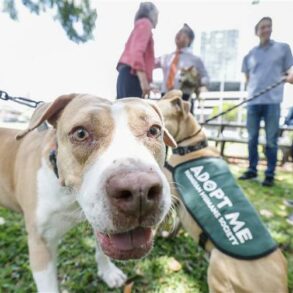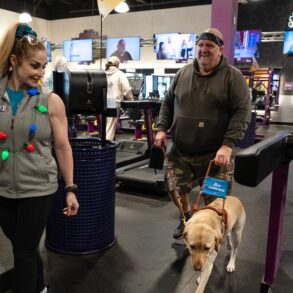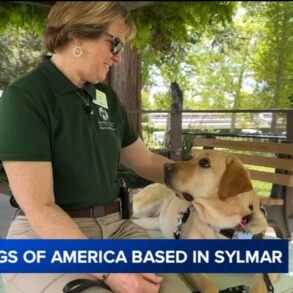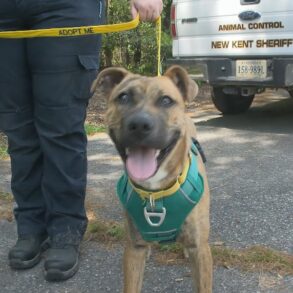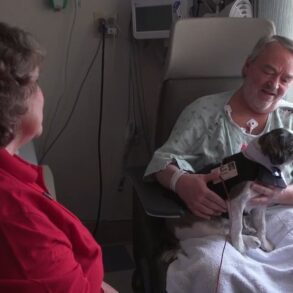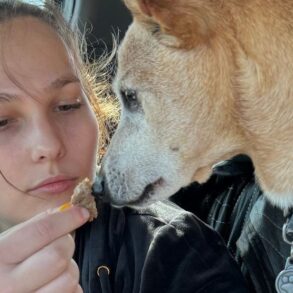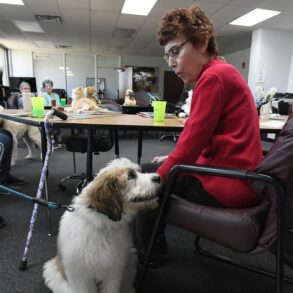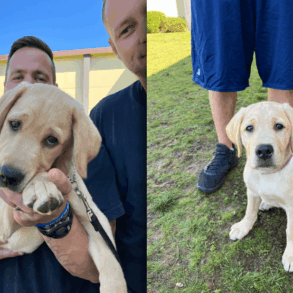
The Kirkland Junior Common Room has seen its fair share of prestigious visitors, from actor Woody Harrelson to former Senate majority leader Chuck E. Schumer ’71. But on Wednesday, their guests had a bit more bark.
Elias Weiss Friedman, founder of The Dogist Blog, and evolutionary biology professor Erin Hecht joined Kirkland faculty dean David J. Deming for a wide-ranging discussion on dog’s psychology and their relationship with humans. They were joined by more than 30 students — and a handful of dogs.
Friedman said he works as a photographer capturing images of dogs to “give people more insight and appreciate their dogs more.”
“We take them for granted,” he said. “We don’t give them enough credit — we give them a lot of credit, but no amount is enough.”
Friedman’s work initially took off in 2013 when he founded The Dogist, an online platform dedicated to documenting dogs from around the world. Since then, he has accumulated over 11 million followers on social media and photographed over 50,000 dogs. But Friedman said he was initially self-conscious about beginning his creative journey.
“Growing up, it was always a fantasy to work with dogs, but it wasn’t on the list of careers in kindergarten,” he said. “It wasn’t something I wanted to express, because I figured I’d be ridiculed for being a pet photographer.”
Since then, Friedman grew his blog and published a New York Times bestselling collection of his photography. He is set to release his first narrative book, “This Dog Will Change Your Life,” this June.
Hecht, who directs the Canine Brains Project at Harvard, said her passion for studying dogs also started from an early age.
“When I was a kid, I was obsessed with animals — I played with animals, I didn’t play with dolls,” she said.
Advertisement
Her current research focuses on understanding how brain structure relates to behavior in dogs and other domesticated animals. With a specialized skill in applying MRI scans to dogs, Hecht said her work helps explain the inner life of man’s best friend.
“An MRI scan lets you see inside a dog’s head,” she says. “We can see signatures of fearfulness or aggression or trainability, something we might think of as sort of like cognitive capacity or ability to learn.”
While Friedman uses his camera to capture photos of a wide range of breeds, Hecht said her imaging shows the diversity of the species through their unique mental processes.
“I think there’s just so much variability in dog brains, and it’s so cleanly linked to behavior, because humans have bred dogs for specific behaviors,” she said.
Hecht said a strong bond is created between dogs and humans because of their cognitive perception of humans’ tone and body language. This leads dogs to perceive their owners as their “social partner,” and are able to respond to subtle mood shifts.
“We release oxytocin, and they release oxytocin, and it makes you feel good, and it creates a bond,” Hecht said. “It’s like they’re hacking our biology.”
Friedman attempted to prove that dogs can sense human emotion by conducting a mini-experiment with Sasha, the Harvard University Police Department’s community engagement dog.
“I pretended to hurt myself with a hammer, and Sasha intuited that I was in pain,” Friedman said. “I do believe that they can recognize our emotions and our sadness, and they can just lift us out of whatever funk we’re in.”
Even beyond the relationship between owner and dog, Friedman said that owning a dog opens other avenues for social interaction.
“Before you get a dog, you know your neighbor, and after you get a dog, you know your neighborhood,” he said. “There’s just this force of community and socialization.”
Advertisement
Friedman emphasized the importance of owning a dog for young people and individuals living in cities, where it is easy to “get lost in the crowd.”
“We’re sucked in by our phones all day, and so we’re missing a lot of human connection,” he said. “A lot of people are not willing to suffer through that isolation and will get a dog earlier, because you’re never alone.”
But beyond psychology and photography, Deming said the explanation for bonds between humans and their pets is very simple.
“Why do we love dogs? Because they love us,” Deming said.
This post was originally published on this site be sure to check out more of their content.







